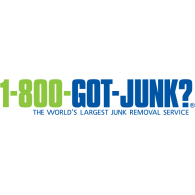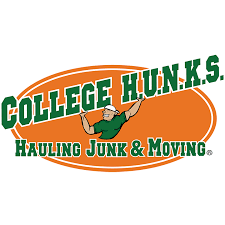Junk King Franchise in 2025: Costs, Fee & FDD
Is one man’s trash really another man’s treasure? Find out by exploring Junk King’s franchise costs and financial outlook. Learn about the investment, fees, and potential earnings of this leading junk removal service. See if Junk King fits your investment goals. Read more for details!

Table of Contents:
Founded in 2005 by longtime friends Michael Andreacchi and Brian Reardon, Junk King started in their garage with a clear mission: to provide reliable junk removal services. Recognizing a growing need for dependable clutter removal, Mike and Brian built a company that has since become a significant player in the junk removal industry. Today, Junk King stands as the second largest and fastest-growing junk removal service in North America. Their commitment to superior service and environmental responsibility has solidified their reputation and market presence.
Junk King specializes in junk removal services for residential, commercial, and construction clients. As a leading junk removal company, their core offering includes the removal of items such as furniture, appliances, and yard waste. They also provide commercial services for construction debris and office cleanouts, ensuring that your space is left cleaner after every job. A notable feature of Junk King’s business model is its strong focus on recycling, helping to rid the environment of excess waste. Customers can conveniently book online, making the process of booking junk removal services as easy and efficient as possible. Their primary customers are homeowners, businesses, and construction companies who need efficient and eco-friendly junk removal solutions.
Currently, Junk King operates over 150 locations across the United States and Canada. This extensive network allows them to serve a broad and growing customer base, handling a substantial volume of removal jobs each day. The company’s rapid expansion is a testament to its effective business model and high demand for its services.
Franchisees benefit from Junk King’s comprehensive support system, including extensive training programs and operational support. New franchisees receive hands-on training in the company’s processes, customer service, and business operations. The franchise also offers marketing support, ongoing operational assistance, and a well-established brand reputation to help ensure success. Junk King’s dedication to its franchisees is evident in its commitment to providing a robust support system and fostering a collaborative network of franchise owners.

Junk King Franchise Insights
- Junk King is the second-largest junk removal service in North America, boasting over 150 locations across the U.S. and Canada. Their rapid growth highlights the increasing demand for their eco-friendly and efficient services.
- Junk King’s commitment to sustainability is evident in their impressive recycling rate of approximately 60% of the items they collect, which helps divert significant amounts of waste from landfills.
- The franchise consistently receives high customer satisfaction ratings, with many clients praising their reliability and exceptional service. This strong reputation contributes to their growing market presence and customer loyalty.
- With a daily customer base that spans numerous residential and commercial clients, Junk King’s extensive network supports a high volume of removal jobs, underscoring the effectiveness of their business model.
Junk King Franchise Key indicators
Growth YOY (%)
7%
vs industry 4%
Total U.S. Franchised Units
169
3-Year Failure Rate
2%
vs industry 5%
Sales-to-Investment ratio
3.5:1
How much does it cost to open a Junk King franchise?
Understanding the potential investment size and capital requirements is crucial when considering opening a Junk King franchise. These financial commitments, including initial franchise fees, equipment costs, and ongoing operational expenses, impact the feasibility and profitability of the venture. Thoroughly evaluating these factors ensures that potential franchisees are prepared for the financial responsibilities and can make informed decisions about their ability to sustain and grow the business, ultimately contributing to long-term success.
Min & Max Investment
Opening a Junk King franchise involves several key costs, which are outlined in Item 7 of the Franchise Disclosure Document (FDD). You can see a breakdown of the costs to open a Junk King below from the most recent Item 7 below:
Type of Expenditure
Minimum Investment
Maximum Investment
Initial Franchise Fee
$54,000
$78,000
Travel and Living Expenses While Training
$1,500
$7,000
Inventory and Supplies
$500
$1,000
Fixtures, Furniture, and Equipment
$2,000
$3,000
Signage
$1,000
$2,000
Vehicles
$15,000
$20,000
Office and Warehouse Lease
$1,500
$6,000
Leasehold Improvements
$0
$5,000
Prepaid Expenses/Insurance
$1,800
$3,000
Pre-Opening Payroll
$1,000
$5,000
Additional Funds - 3 months
$15,000
$50,000
Total
$93,300
$180,000
Item 7 in the Franchise Disclosure Document (FDD) is the “Estimated Initial Investment” section. It outlines the total costs a franchisee can expect to incur when starting a franchise, including the initial franchise fee, equipment, inventory, real estate, and other startup expenses. This section is crucial because it provides potential franchisees with a detailed understanding of the financial commitment required, helping them assess affordability and plan their investment strategy effectively.
Required Capital
To open a Junk King franchise, prospective franchisees need to meet certain financial criteria to ensure they have the necessary resources to operate and grow their business. Here’s a breakdown of the estimated financial requirements:
- Initial Investment The total investment to open a Junk King franchise ranges from $93,000 to $180,000. This includes costs such as equipment, initial inventory, marketing, and other startup expenses. Assuming that you will finance your franchise investment, you should plan to have 20% of the total investment amount in the form of equity (cash) for the investment.
- Liquid Assets Requirement Prospective franchisees should have liquid assets (cash or easily accessible funds) of approximately $50,000 to $75,000. This amount ensures that franchisees can cover initial operating costs and unforeseen expenses during the early stages of the business.
- Net Worth Requirement A net worth of at least $150,000 to $250,000 is typically required. This includes the total value of all assets, such as property and investments, minus any liabilities.
How much does a Junk King franchise owner make?
Calculating the salary of a Junk King franchise owner involves analyzing gross sales to determine total revenue, assessing operational efficiency to understand profit margins, and accounting for franchisor fees and additional expenses such as rent, utilities, and payroll. Effective management of these factors can significantly impact the profitability and financial success of a Junk King franchise owner. This comprehensive financial analysis helps estimate net profits, from which the owner’s salary can be derived. A clear understanding of these factors ensures accurate salary projections and financial planning for sustainable business operations.
Junk King Revenue & Gross Sales
Based on most recent analysis, Junk King franchises have a median gross sales of $476,871, indicating solid revenue performance. This figure demonstrates the franchise’s consistent market presence and the ongoing demand for its junk removal services.
Which key factors impact the average revenue performance of Junk King franchisees?
The performance of U.S. franchisee median gross sales for Junk King can be influenced by several factors. Key among these are the effectiveness of local marketing strategies and the overall brand strength in different regions. Franchisees’ operational efficiency and their ability to manage expenses also play a crucial role. Additionally, regional economic conditions and competition within the junk removal industry can impact sales figures. Consistency in providing high-quality customer service and maintaining a strong online presence are essential for attracting and retaining clients, which directly affects revenue. Overall, a combination of effective management, local market dynamics, and brand reputation likely contributes to the franchise’s sales performance.
Junk King Franchise Operational Costs
When opening a Junk King franchise, it’s essential to consider several primary ongoing operational costs that will impact your bottom line. Understanding these costs will help you manage your business effectively and maintain profitability.
- Vehicle Maintenance and Fuel Regular maintenance and fuel for your fleet are critical expenses, as your business relies on trucks for junk removal services.
- Employee Wages and Benefits Payroll is a significant ongoing cost, including wages for drivers and laborers, as well as any benefits you may offer.
- Disposal Fees Fees associated with disposing of junk at recycling centers, landfills, or other facilities are recurring costs that vary depending on the volume and type of materials collected.
- Marketing and Advertising Local marketing efforts, such as digital advertising, print materials, and community outreach, are necessary to attract and retain customers.
- Office and Administrative Costs Expenses for office supplies, software, insurance, and other administrative needs are ongoing and essential for smooth operations.
By keeping these key operational costs in mind, you’ll be better prepared to manage your franchise efficiently and ensure long-term success.
Junk King Franchise Fees
When opening a Junk King franchise, it’s important to consider specific fees that will directly impact your ongoing expenses. These fees are essential for maintaining your franchise’s operations and ensuring alignment with the franchise’s standards and marketing efforts.
- License Fee Junk King charges a license fee that starts at 8% of gross sales for the first 18 months. After that period, the fee becomes the greater of 8% of gross sales or a flat $2,000 per month, ensuring consistent revenue for the franchisor while allowing for predictable budgeting as your business grows.
- Marketing, Advertising, and Promotion Fund (MAP Fund) Initially, you’ll contribute $625 per month to the MAP Fund during your first year of operation. After the first year, this fee increases to $845 per month, with the potential for an annual increase of up to 20%. This fund supports national advertising campaigns, which helps drive traffic to your business.
- Additional Fees There are additional fees for training programs, technology, and other items provided by Junk King that may be applied.
Understanding these key fees will help you manage your franchise effectively and ensure you’re prepared for the financial commitments involved in running a successful Junk King franchise.
Junk King Franchise Earnings
The earnings potential for a Junk King franchise owner can vary based on factors such as location, management effectiveness, and operational efficiency. With median gross sales around $476,871, owner-operators can expect estimated earnings of approximately $100,000 annually. This figure reflects an operating profit margin of just over 20%, demonstrating the potential profitability of the franchise for those who actively manage day-to-day operations.
The operating profit margin is based on averages for the Junk Removal industry, which are some of the highest operating profit margins in the franchise industry
Franchise owners who are hands-on in their business operations can see substantial returns, especially when they effectively manage costs and drive sales. The strong profit margin underscores the potential for a rewarding income in a well-run Junk King franchise. Active involvement in the business is key to maximizing earnings and achieving success in this growing sector.
How to Open a Junk King Franchise
Embarking on the journey to become a Junk King franchisee involves several key steps, from initial inquiry to launching your business operations. Understanding this process will help you navigate each phase effectively and ensure a smooth transition into franchise ownership.
- Initial Inquiry You or your franchise specialist submits an initial inquiry basic information about your interest and background. You should also conduct thorough research on the franchise, including seeing all of the information available on the Vetted Biz franchise intelligence platform, including access to the most recent Franchise Disclosure Document (FDD).
- Application and Review Submit a formal franchise application to Junk King. This will include financial details, personal background information, and a preliminary business plan. Junk King will review your application to ensure you meet their qualifications.
- Discovery Day Attend a Discovery Day event hosted by Junk King. This is an opportunity to meet the franchise team, learn more about the operations, and ask any remaining questions.
- Financing and Lease Negotiation Secure financing for your franchise investment and negotiate a lease for your operating location, if applicable. Junk King may offer guidance on financing options and location selection.
- Training Program Complete the required training program provided by Junk King. This training covers operational procedures, customer service, marketing strategies, and other essential aspects of running the business.
- Grand Opening Preparation Prepare for your grand opening by setting up your operations, recruiting and training staff, and implementing marketing plans. Junk King will support you with marketing materials and promotional strategies.
- Start of Operations Launch your Junk King franchise and begin operations. Continue to receive support from the franchisor as you establish and grow your business.
Pros & Cons
Pros
Established Brand: Junk King is the second-largest junk removal service in North America, offering strong brand recognition and a proven business model. This established presence can attract customers and provide credibility from the start.
Eco-Friendly Model: The franchise’s commitment to recycling and sustainability appeals to environmentally-conscious consumers, setting Junk King apart from competitors and enhancing its market appeal.
Flexible Operations: The junk removal industry benefits from relatively low overhead costs and flexible operational hours, allowing franchisees to adapt to local market demands and optimize their operations.
Cons
Market Competition: The junk removal industry can be competitive, with local and national players vying for market share. Franchisees must be prepared to differentiate their services and effectively compete in their local markets.
Operational Challenges: Managing a junk removal business involves logistical challenges, including fleet maintenance, route optimization, and compliance with local disposal regulations. These operational complexities may require significant time and effort to address effectively.
Seasonal Demand Fluctuations: Junk removal services can experience seasonal fluctuations in demand, with peak periods often influenced by factors like spring cleaning or end-of-year moves. These fluctuations can affect revenue stability throughout the year.



